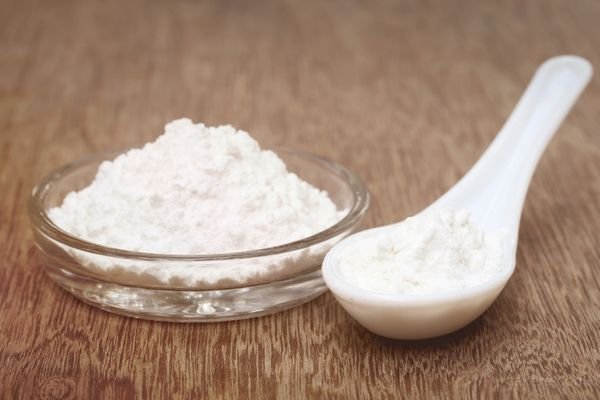Baking is an art that requires a perfect balance of ingredients, including flour, sugar, eggs, and leavening agents. When it comes to leavening agents, baking powder is one of the most commonly used ingredients in baking.
It’s a crucial ingredient that helps to create fluffy cakes, soft cookies, and perfectly risen bread. But what exactly does baking powder do in baking? Let’s find out.

What Does Baking Powder Do in Baking?
Baking powder is a combination of baking soda, cream of tartar, and sometimes cornstarch. It’s a leavening agent that helps to make baked goods rise. When combined with a liquid, baking powder produces carbon dioxide gas, which creates air pockets in the dough or batter. These air pockets expand during baking, causing the dough or batter to rise.
But that’s not all that baking powder does. It also helps to:
- Create a light and airy texture: Baking powder helps to create a light and airy texture in baked goods. This is because the carbon dioxide gas it produces expands during baking, creating air pockets that make the final product light and fluffy.
- Neutralize acidic ingredients: Baking powder is slightly alkaline, which means it can neutralize acidic ingredients in a recipe. This is important because too much acid can affect the texture of baked goods, making them tough or chewy.
- Activate gluten: Baking powder can also help to activate gluten in flour. Gluten is a protein that gives baked goods their structure and helps them to rise. Baking powder can help to make the gluten in flour more elastic, resulting in a better texture.
How to Use Baking Powder in Baking?
When using baking powder in baking, it’s essential to measure it carefully. Using too much or too little baking powder can affect the texture and rise of your baked goods. As a general rule, use one teaspoon of baking powder for every cup of flour in your recipe.
Baking powder should also be mixed with the dry ingredients in a recipe, so it’s evenly distributed throughout the batter or dough. If you’re using a recipe that calls for both baking powder and baking soda, make sure to follow the instructions carefully. Baking soda requires an acidic ingredient to activate, while baking powder does not.
FAQs
No, baking soda and baking powder are not interchangeable. Baking soda requires an acidic ingredient to activate, while baking powder does not.
Using too much baking powder can cause your baked goods to rise too quickly and then collapse. They may also have a bitter taste.
No, expired baking powder will not work properly and may affect the taste of your baked goods.
Conclusion
Baking powder is a versatile ingredient that plays a crucial role in baking. It helps to create light and fluffy textures, neutralize acidic ingredients, and activate gluten. By understanding how baking powder works and how to use it properly, you can create delicious baked goods that rise perfectly every time. So the next time you bake, remember to thank baking powder for its important role in creating your perfect treat.
